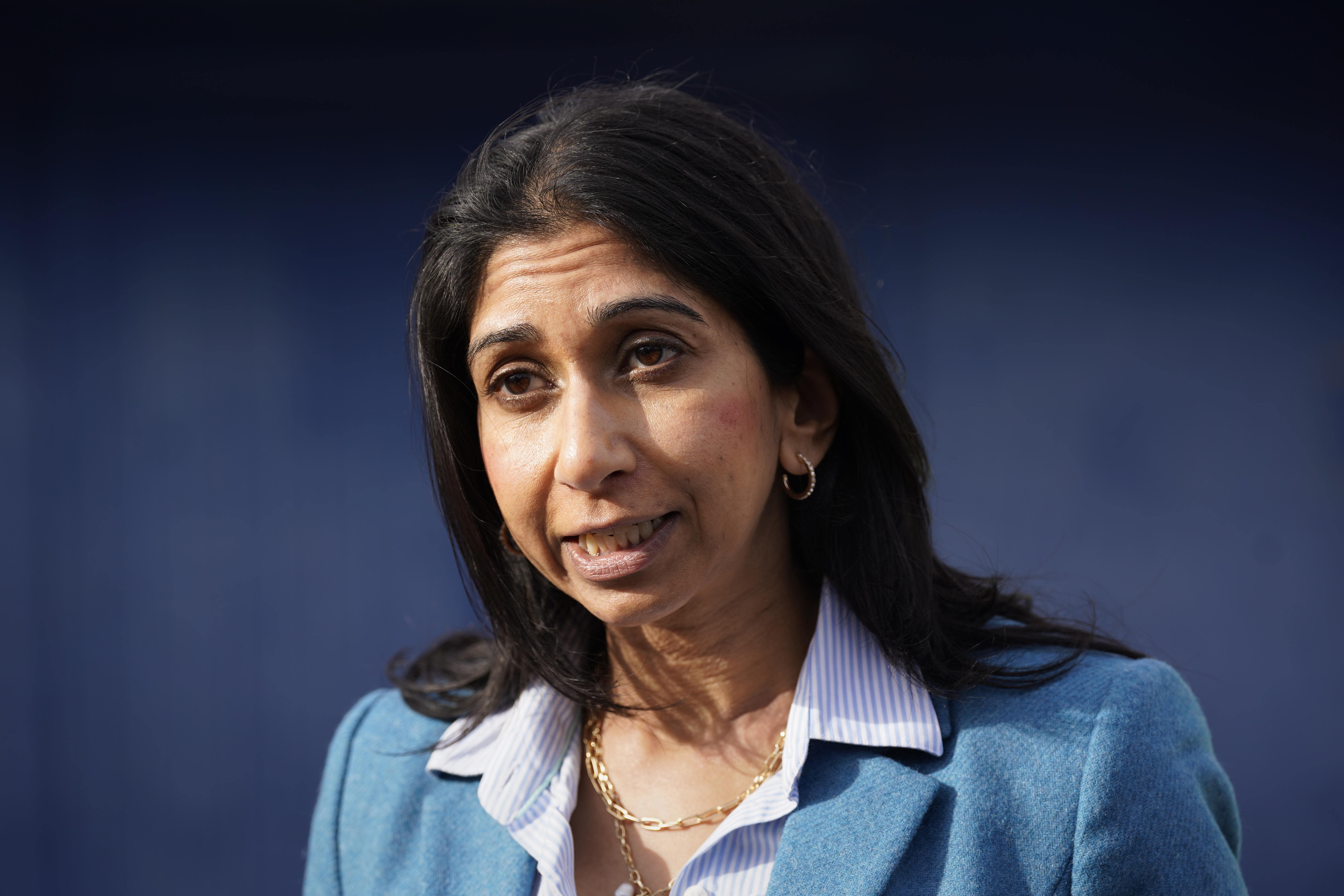Government’s asylum questionnaires could worsen backlog, lawyers warn
Exclusive: Lawyers tell home secretary that fresh asylum claims will be made by people who cannot return documents

Your support helps us to tell the story
From reproductive rights to climate change to Big Tech, The Independent is on the ground when the story is developing. Whether it's investigating the financials of Elon Musk's pro-Trump PAC or producing our latest documentary, 'The A Word', which shines a light on the American women fighting for reproductive rights, we know how important it is to parse out the facts from the messaging.
At such a critical moment in US history, we need reporters on the ground. Your donation allows us to keep sending journalists to speak to both sides of the story.
The Independent is trusted by Americans across the entire political spectrum. And unlike many other quality news outlets, we choose not to lock Americans out of our reporting and analysis with paywalls. We believe quality journalism should be available to everyone, paid for by those who can afford it.
Your support makes all the difference.The government’s plan to potentially withdraw people’s asylum claims if they do not respond to new questionnaires may backfire and increase a record backlog, lawyers have warned.
Around 12,000 asylum seekers from countries with the highest current grant rates are being sent the documents, in place of being given normal interviews, as part of a radical attempt to fast-track processing.
The unprecedented scheme was announced last month, after Home Office insiders warned it would be impossible to achieve the prime minister’s vow to clear the backlog that had built up by the end of 2023.
More than 160,000 asylum seekers are awaiting initial decisions on their applications, with some living in limbo for years, but the questionnaires are only being offered to those from Afghanistan, Eritrea, Libya, Syria and Yemen.
They contain 50 questions, including on political persecution and trafficking, which must be answered in English within 20 working days.
“A failure to return the questionnaire without reasonable explanation may result in an individual’s asylum claim being withdrawn in line with the published policy on withdrawing asylum claims,” the documents state.
But a letter to home secretary Suella Braverman from almost 170 lawyers, experts, solicitors’ firms and refugee groups warns that asylum seekers who want their claims to continue will simply lodge new ones.
The letter, seen by The Independent, says: “This proposed plan of withdrawing claims will only give the appearance of reducing the backlog, whilst in fact adding to the backlog of fresh asylum claims being made. We urge the government to rethink its plan and to remedy it.”
Lawyers added that asylum seekers who cannot complete the questionnaires in time face losing government accommodation and support, being threatened with deportation, and having new claims declared “inadmissible” for consideration.
The letter, coordinated by the Immigration Law Practitioners’ Association (ILPA) and backed by charities including Freedom from Torture, the Joint Council for the Welfare of Immigrants and the Refugee Council, calls the documents “long, complex and poorly drafted”.
It says the government has not given asylum seekers long enough to access legal representation, particularly if they are not literate in English or are suffering from trauma, and that ministers should have consulted expert groups.
The letter makes 12 recommendations for changes, including simplifying the questionnaire, providing translations, and offering optional extensions to the 20-day deadline.
Jonathan Griffin, chief executive of the ILPA, said: “While the government’s aim of speeding up decision-making for those with manifestly well-founded claims is welcome, we are deeply concerned about the fairness of a process that requires a person without legal advice to respond to a long and complicated questionnaire, in English, in a short space of time, under threat of their asylum claim being withdrawn.”
Matilda Bryce, asylum policy and campaigns manager at the charity Freedom from Torture, said: “The questionnaire in its current form risks exacerbating the asylum backlog while jeopardising the asylum claims of individuals unable to complete the form before the arbitrary deadline.”
Home Office officials said no asylum refusal decisions would be made on the basis of the questionnaire alone, and that applicants will have a “substantive interview” if their answers are insufficient for a grant. They said that the countries had been selected because they had asylum grant rates of over 95 per cent, and that the situation could change in future.
A Home Office spokesperson said: “This scheme is one step we are taking to help clear the asylum backlog. It is standard practice for Home Office immigration documents to be in English. The majority of asylum seekers who will be receiving the questionnaire already have legal representatives who can help them with translation, if required, and friends, family and non-government organisations can also assist.
“If insufficient information is provided in the questionnaire, the caseworker can arrange an interview. Asylum claims can only be refused after an interview, not on the questionnaire alone, and the Home Office will consider extensions to the deadline on a case-by-case basis.”
Subscribe to Independent Premium to bookmark this article
Want to bookmark your favourite articles and stories to read or reference later? Start your Independent Premium subscription today.



Join our commenting forum
Join thought-provoking conversations, follow other Independent readers and see their replies
Comments